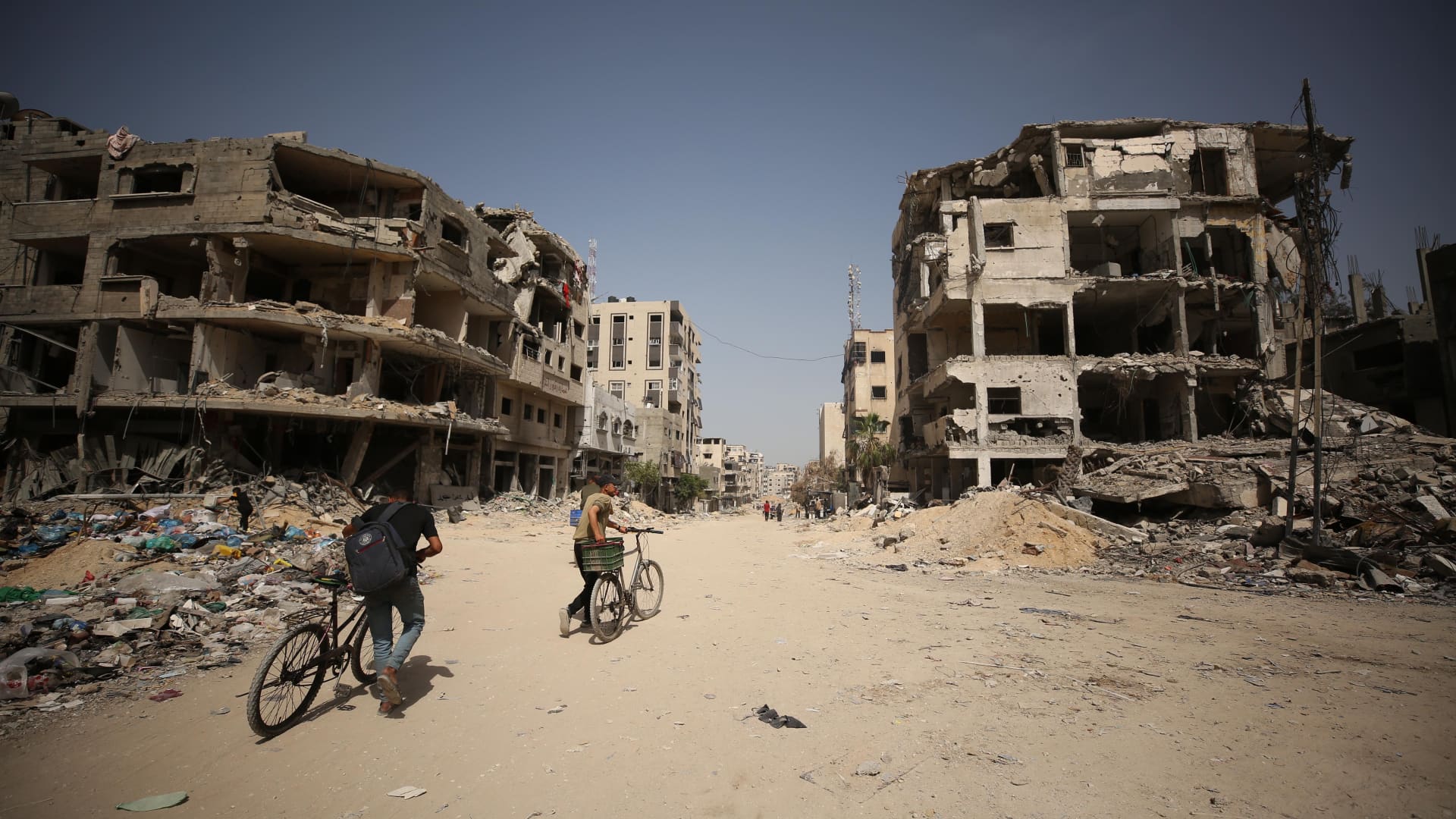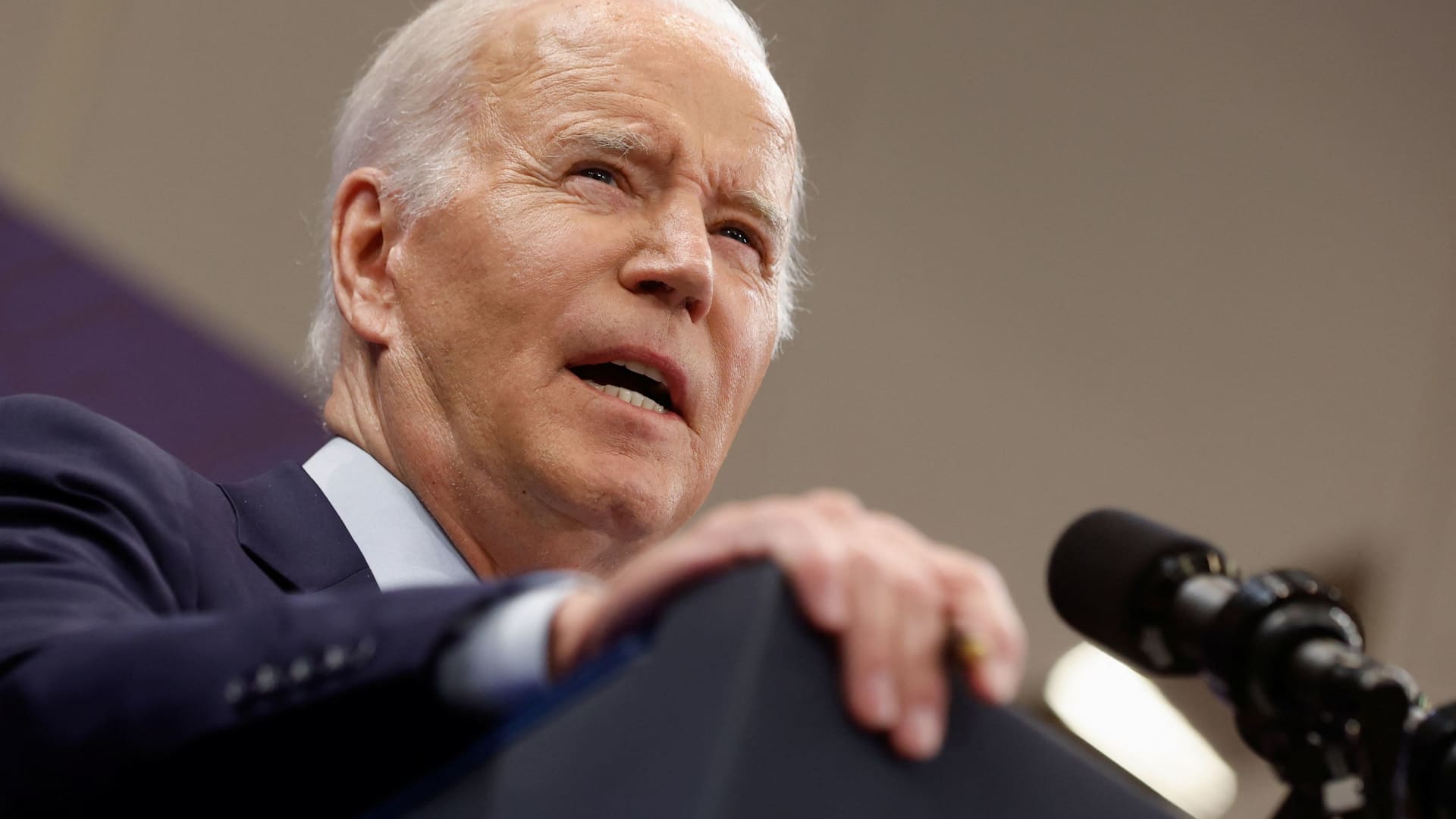In a small room in Lower Manhattan, a group of eight New Yorkers sat in a circle, sharing kombucha and their climate fears against a backdrop of pelting rain and blaring sirens.
In Champaign, Illinois, a psychotherapist facilitating a meeting for other therapists held up a branch of goldenrod and challenged the half-dozen participants online to reflect on their connection to nature.
And in Kansas City, Missouri, a nonprofit that hosts a weekly discussion over Zoom began its session with a spiritual reading and a guided meditation before breaking into groups to discuss topics such as the ethics of having children amid a rapidly growing global population and discuss concerns about resource scarcity.
All were examples of a new grassroots movement called Climate Cafés. These in-person and online groups are places where people can talk about their grief, fears, anxieties and other emotions related to the climate crisis.
They are popping up in cities across the United States — including Los Angeles, Seattle and Boston — and around the world. It’s not clear how many there are, but Rebecca Nestor of the Climate Psychology Alliance, a nonprofit that trains facilitators, said the number of cafes has risen sharply in the past three years. The group has trained around 350 people to run climate cafes in the US, Canada and Europe, and its North American branch lists 300 clinicians in its directory of climate-conscious therapists.
The alliance studies how ecosystems impact mental health – extreme weather and disasters; polluted air and water – and how that intersects with other forces like racism and income inequality. Psychologists say such groups help people face the troubling reality of the climate crisis.
Ms Nestor first hosted a climate café in Oxford in the UK in 2018. She said the idea was modeled after the Death Café, a concept by a Swiss sociologist where people come together to talk openly about death in order to better appreciate their lives.
Many of the climate cafés are free and open to the public, but some have been set up specifically for librarians, therapists and other professionals.
“I can no longer buy into the narrative that there is no choice in how this whole thing ends.”
Since June 2023, 24-year-old Olivia Ferraro, who works in finance, has hosted more than 20 cozy climate cafés in New York City that have had between five and 20 visitors. She has also trained online people from all over the United States and the world – Puerto Rico, Vancouver, England and Australia – who want to facilitate such meetings in their own communities.
On a recent drizzly, unseasonably warm January evening — the temperature was 51 degrees and the high was 56 degrees — Ms. Ferraro was preparing for her meeting. She lit her Brooklyn Candle Company Fern + Moss candle, which she lit at every meeting, and turned on Khruangbin’s relaxing tunes.
She arranged 10 chairs in a circle next to a brick wall, placed grapes, bottled water, plantain chips and other snacks on a table and brought reusable cups from her mother’s wedding in 2016.
People slowly streamed in from all parts of the city. The crowd was mostly young people, including a few older adults. Everyone visited a climate café for the first time.
After some small talk, Ms. Ferraro shared the rules for the evening. She explained that it is not intended to be a substitute for clinical treatment.
Over the course of an hour, participants described concerns for their future children and future generations more broadly. They described feeling overwhelmed not only by climate change, but also by the political climate. They described oscillating between a feeling of hopelessness and a feeling of confidence about the future of the planet.
Sometimes there were long pauses between comments as participants absorbed what was being said and simply stared at each other or into their laps.
“I can no longer buy into the narrative that there is no choice in how this whole thing ends and that big corporations have complete control over my future,” said Sheila McMenamin, 32, who lives in Brooklyn.
“You don’t have complete control, and I refuse to give that up,” she said, as other attendees hummed in agreement.
A Black woman cried and said it was hard knowing that people of color would be disproportionately affected by climate change, but many had not had the time to participate in such groups.
“I’m angry that there aren’t more black and brown people in these spaces,” said the woman, Syrah Scott, a mother in her 40s who lives in Queens. She said many people of color are focused only on survival. “They don’t have the money to take care of these things,” she said.
“I find it difficult to enjoy nature.”
The online climate café for therapists in Illinois began with Kate Mauer rubbing the dried goldenrod stem in her hand that she had picked from her backyard. The object connects her to the climate crisis, she said, because it is one of the many flowers native to Illinois that she planted to restore the natural environment.
But being in her garden began to trigger complex emotions, she said. While nature had always given her comfort, it now also made her sad.
“I find it difficult to enjoy nature because I am constantly reminded of environmental degradation,” she said.
This paradox reminded Lauren Bondy, a cafe attendee, of that morning’s fresh snow and a black rhinoceros. Years ago, while on vacation in Tanzania, Ms. Bondy and her then 19-year-old son caught a glimpse of one of the last endangered species.
“I appreciate the beauty of it, but also the rarity and the loss,” said Ms. Bondy, a therapist on Chicago’s North Shore. “We hold everything.”
The moderators of the climate café said this was not psychotherapy, but rather a group catharsis.
Colleen Aziz, a therapist who runs a virtual practice across Illinois, said she was committed to putting her professional training to use, but that few patients brought climate concerns into their sessions.
“It’s really wonderful to meet clients who are so stable that they’re willing and able to deal with climate head-on,” Ms. Aziz said after the cafe, “but usually it amounts to privilege.”
“It’s a battle between generations.”
Other groups focus more on action.
Around the same time that Ms. Ferraro’s group formed, Jonathan Kirsch, 32, who works as a lawyer and lives in Brooklyn, founded his climate cafe in November 2022. His group started as a private, informal meeting in his apartment, but is now open to the public, and the group is more focused on turning feelings into actions.
On another rainy day in January, more than 30 people crowded into Mr. Kirsch’s home Apartment in Brooklyn for a climate café. The doorbell rang almost continuously as people climbed the stairs to the apartment, taking off their wet coats and piling up their umbrellas.
Many participants at the meeting worked in the climate field, including one man who worked with Extinction Rebellion, the group that disrupted both the US Open and the Met Opera, to shed more light on the climate crisis.
The participants divided into small groups. Although they were frustrated with local, state and national politics, they were hopeful. They were full of ideas about how to channel their energy: composting, gardening, propagation, clothing swaps and mending circles, enforcing certain laws, joining book clubs and writing groups, and even returning to school to further their education.
“The truth is that this is such a long battle, an intergenerational battle,” said one participant in the large group after the smaller discussion groups reconvened. “We must exhibit a resilient mindset where we are willing to lose many battles and simply know that our presence in the greatest battle will be worth it.”
Do climate cafés work?
Coming together to share climate concerns is nothing new. Since the 1970s, environmental activists have organized meetings to discuss how to respond to climate threats. According to Sherrie Bedonie, a social worker and co-founder of the Native American Counseling and Healing Collective, Native American communities have long gathered to mourn the loss of land.
Participants said that coming together to talk openly about their fears provided a sense of levity.
Sami Aron, 71, a retired software engineer, founded the Resilient Activist in Kansas City after her son, a climate activist and urban studies graduate student at Berkeley, died by suicide, citing feelings of hopelessness in the face of climate change.
Her group’s cafes try to inspire hope, she said.
“The fear, the hopelessness, is spreading through all of us and that’s why we don’t talk about it because it’s too painful,” Ms Bondy said. “If we can’t heal what we’re all feeling,” she added, “we can’t heal our planet.”
If you are having suicidal thoughts, call or text 988 to reach the 988 Suicide and Crisis Lifeline or go to SpeakingOfSuicide.com/resources for a list of additional resources.
Source link
2024-03-20 12:50:33
www.nytimes.com













